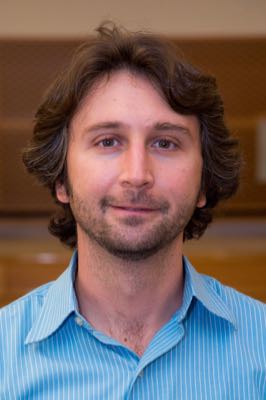Charge-Recycling based Design Paradigm for Efficient and Secure RF-Powered IoT Devices
Charge-Recycling based Design Paradigm for Efficient and Secure RF-Powered IoT Devices
Energy autonomy is a fundamental challenge facing future Internet-of-things (IoT). Relying on existing battery technologies is not only impractical, but also insufficient due to stringent constraints on form factor and limited power densities of conventional charge storage techniques. Wireless/RF power harvesting has recently received considerable attention due to the ubiquity of RF energy around the world such as mobile phones, TV/radio broadcast, and mobile base stations. Applications that rely on dedicated wireless power source are also increasingly more common. Examples include RFID systems with an active reader, wireless sensor nodes with a dedicated exciter, and implantable devices for healthcare that rely on nearfield inductive coupling-based power harvesting. A primary issue in these devices is the scarcity of available power. As such, wirelessly harvested power is not sufficient for expensive computational tasks such as encryption and data compression. Furthermore, these devices lack the resources to implement hardware-based root-of-trust. In this talk, I will present a novel vision on developing an efficient and secure computing paradigm for wirelessly powered IoT devices. The proposed method investigates the direct use of harvested AC power by leveraging charge-recycling adiabatic circuit design techniques. The proposed approach increases the energy efficiency by more than an order of magnitude while enhancing critical hardware security characteristics such as resistance to power side-channel attacks and reverse engineering attacks. I will present a test chip in 65nm node where wireless energy is used to directly power a lightweight encryption core without any DC voltages.
Date and Time
Location
Hosts
Registration
-
 Add Event to Calendar
Add Event to Calendar
Loading virtual attendance info...
Speakers
 Dr. Emre Salman of IEEE CASS Distinguished Lecturer
Dr. Emre Salman of IEEE CASS Distinguished Lecturer
Charge-Recycling based Design Paradigm for Efficient and Secure RF-Powered IoT Devices
Energy autonomy is a fundamental challenge facing future Internet-of-things (IoT). Relying on existing battery technologies is not only impractical, but also insufficient due to stringent constraints on form factor and limited power densities of conventional charge storage techniques. Wireless/RF power harvesting has recently received considerable attention due to the ubiquity of RF energy around the world such as mobile phones, TV/radio broadcast, and mobile base stations. Applications that rely on dedicated wireless power source are also increasingly more common. Examples include RFID systems with an active reader, wireless sensor nodes with a dedicated exciter, and implantable devices for healthcare that rely on nearfield inductive coupling-based power harvesting. A primary issue in these devices is the scarcity of available power. As such, wirelessly harvested power is not sufficient for expensive computational tasks such as encryption and data compression. Furthermore, these devices lack the resources to implement hardware-based root-of-trust. In this talk, I will present a novel vision on developing an efficient and secure computing paradigm for wirelessly powered IoT devices. The proposed method investigates the direct use of harvested AC power by leveraging charge-recycling adiabatic circuit design techniques. The proposed approach increases the energy efficiency by more than an order of magnitude while enhancing critical hardware security characteristics such as resistance to power side-channel attacks and reverse engineering attacks. I will present a test chip in 65nm node where wireless energy is used to directly power a lightweight encryption core without any DC voltages.
Biography:
Emre Salman received the Ph.D. degree in electrical engineering from the University of Rochester, NY, USA in 2009. Since 2010, he has been with the Department of Electrical and Computer Engineering, Stony Brook University (SUNY), NY, USA, where he is currently a Professor. His broad research interests include analysis, modeling, and design methodologies for integrated circuits and VLSI systems with applications to energy-efficient and secure computing, Internet-of-things with energy harvesting, and implantable devices. He is the leading author of the comprehensive tutorial book entitled High Performance Integrated Circuit Design (McGraw-Hill). Dr. Salman is currently serving as a Distinguished Lecturer of the IEEE Circuits and Systems (CAS) Society. He is a recipient of the Technological Innovation Award from IEEE Region 1, Outstanding Young Engineer Award from IEEE Long Island, and NSF CAREER Award.
Email:
Address:Stony Brook University (SUNY), New York, , Stony Brook University (SUNY), New York, United States
Agenda
Charge-Recycling based Design Paradigm for Efficient and Secure RF-Powered IoT Devices
IEEE SEM Chapter 1 Technical Presentation - Charge-Recycling based Design Paradigm for Efficient and Secure RF-Powered IoT Devices

